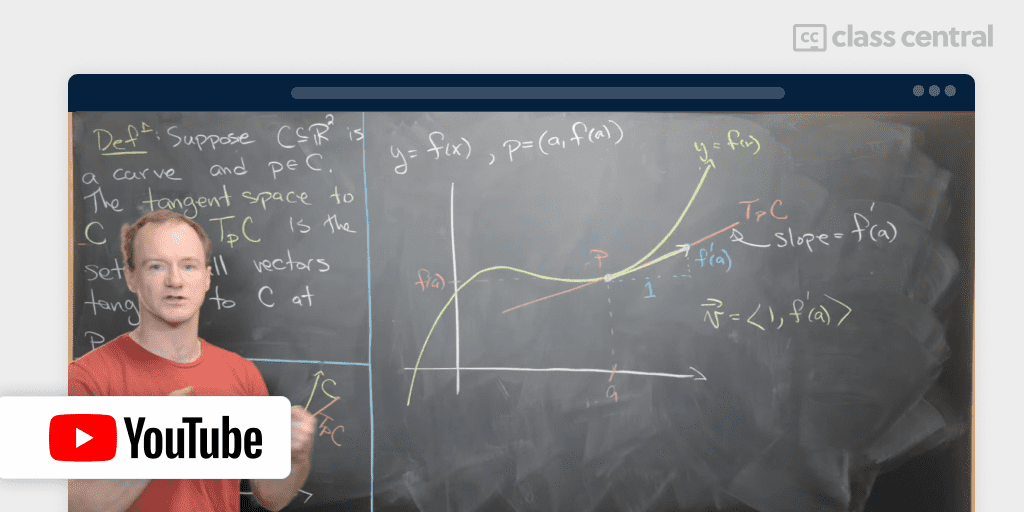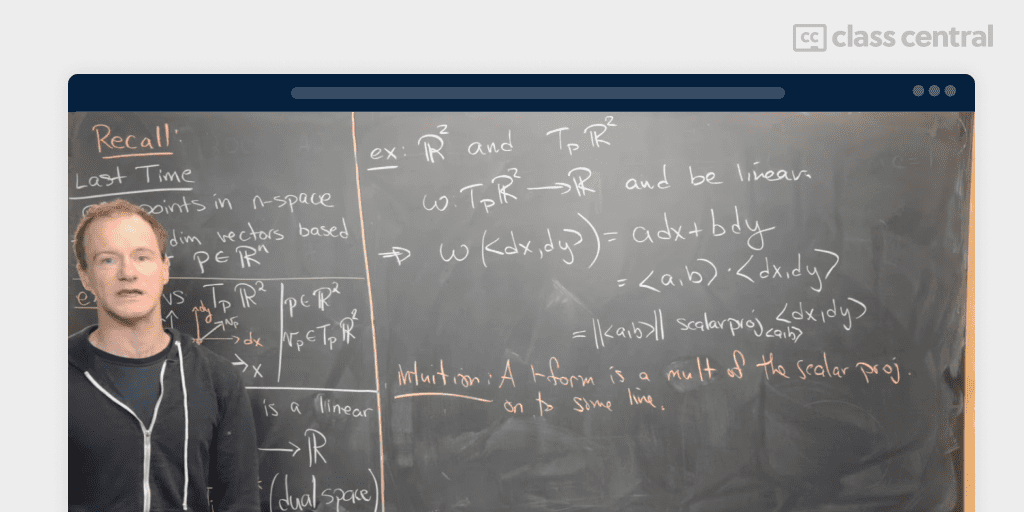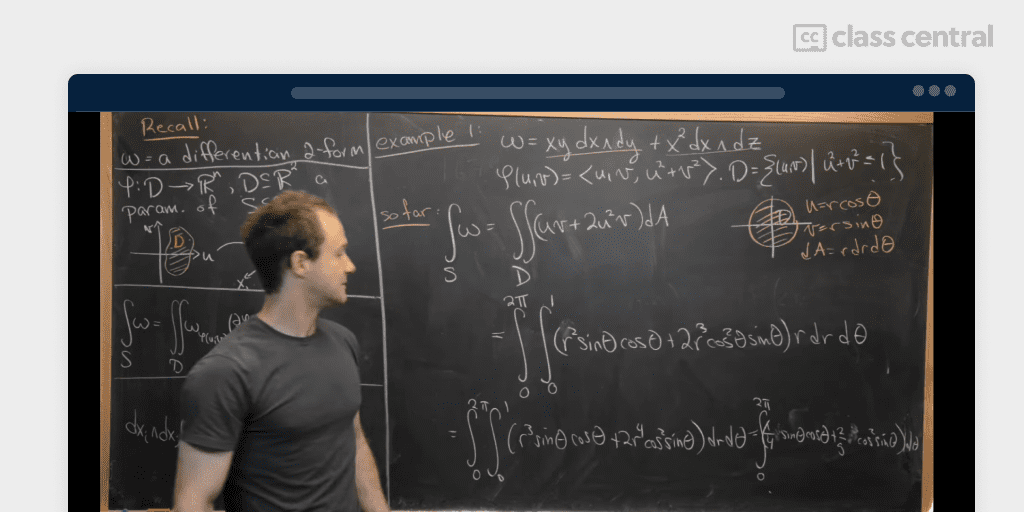Learn Differential Forms in this free course with Michael Penn
In this free course you will learn mathematical tools that are part of most advanced physics courses, advanced classical mechanics and control theory.

About this review
The reviewer, Roger Powell, studied the Differential Forms course having had a passing acquaintance with differential forms but wished to know more. He has a background in engineering and control theory.
The set up
This course teaches you that algebra and 3D vector calculus can more easily be represented using differential forms (e.g. Maxwell’s equations are presented in a much more compact form) and with no difficulty extended to arbitrary dimensions. Such mathematical tools are part and parcel of most advanced physics courses, advanced classical mechanics and more recently control theory. Michael Penn’s lectures will give you a clear insight and understanding of these fundamental tools and methods. I have found no other source, textbook or otherwise, that makes this important topic so clear. Incidentally, when he finishes making a point he almost always says “OK, great.”, and his signature sign-off is always “And that’s a good place to stop.”
This course adopts the pedagogy of building on fundamental knowledge, reinforcing newly acquired knowledge and gently but most determinedly taking you forward to a complete and confident understanding of the material. Penn’s use of the chalkboard exemplifies why many of the world’s top universities and top mathematicians still use them. He always leaves the left-hand side of the board with the goals and problem statements of the lecture so that you can always see where you’re going and why. His straightforward approach results in crystal clarity and shows what a great communicator he is.
Prerequisites
The lecture series assumes reasonable familiarity with 3D vector calculus, linear algebra, vector spaces, phase spaces, vector fields, etc.
The author

There is a reason why Michael Penn has hundreds of thousands of YouTube followers. His lectures build very carefully and empathetically, with simple clarity but without dodging tricky concepts. He takes meticulous care to ensure you truly grasp the fundamentals with graded examples starting with almost trivial and ending up at the full deal. There is some subtle humor (and a T-shirt) in there too!
The lecture series

The first lecture starts with the most trivial concept of differential calculus — the gradient of a function — but miss this lecture and you might not understand the rest. Penn shows how the one-dimensional gradient of a function is, in effect, the tangent space defined by differential one-forms and does so in the easiest way imaginable. This lecture opens a door to a new mathematical landscape that was not obvious to you when you first learnt calculus. Just watch the first lecture and you will get to see Michael Penn’s exquisite skill as a teacher of mathematics.
The next few lectures gently build more layers in the same way as his first, taking the listener easily through differential k-forms, the wedge product, exterior calculus but always linking with the layers below and reinforcing prior knowledge through graded examples so that one is totally comfortable with the progression through this elegant mathematical landscape. It’s almost effortless to learn.
Later on it gets a little bit faster as he links back to integral vector calculus and shows, with the introduction to the Hodge star operator (*) how the techniques that you are learning actually make expressing such problems a lot easier and making sense (at least to me) of the relationships between grad, div and curl. Finally, we end up at Stoke’s theorem, not exactly a proof, but that hardly matters as it becomes so obvious.
OK, great. And that’s a good place to stop.






